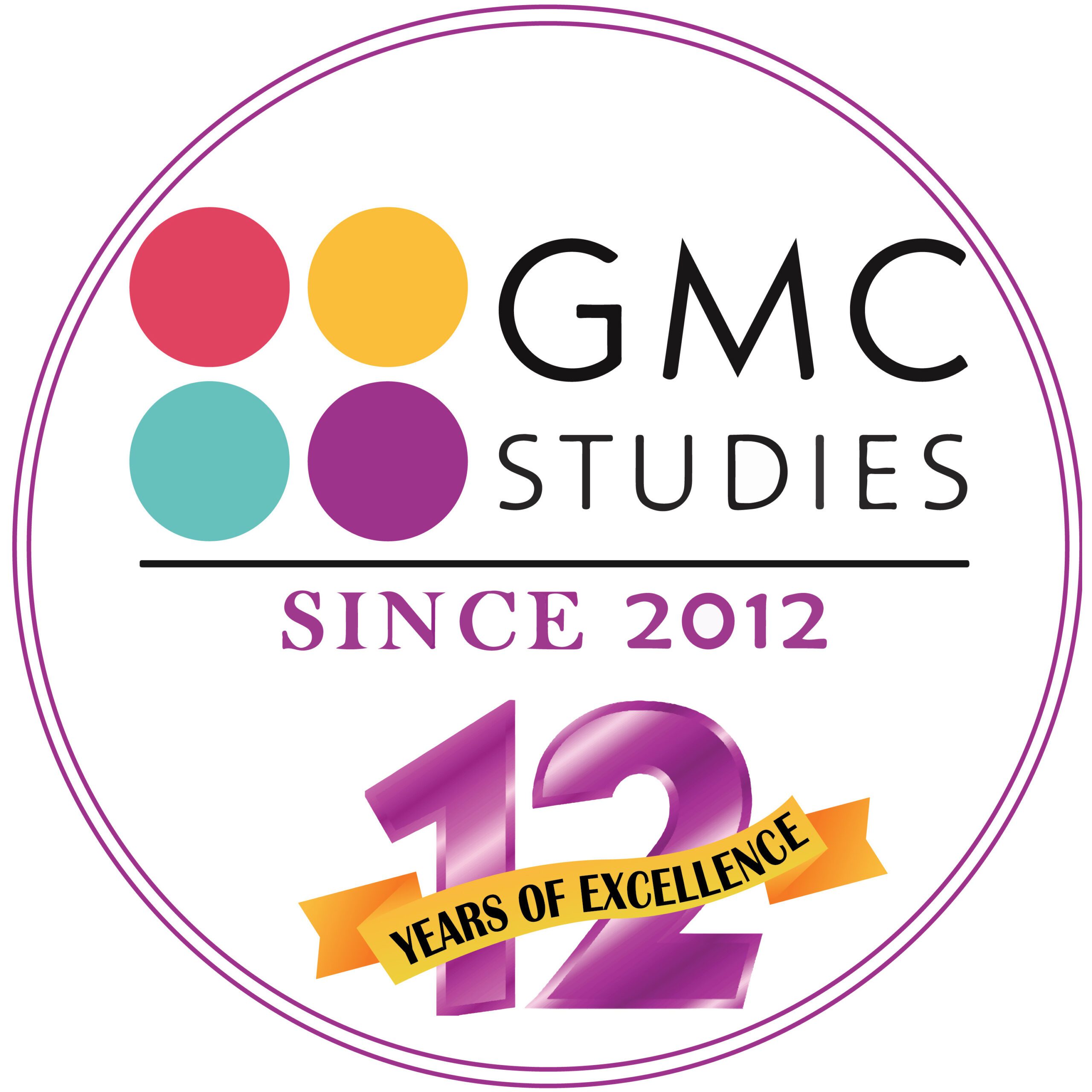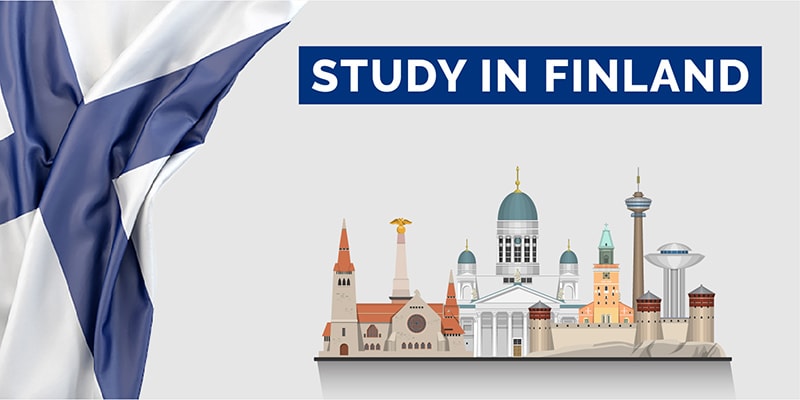Going on a trip to study abroad in Finland is an exciting and life-changing experience. Finland is a Nordic gem known for its excellent education system, beautiful nature scenery, and forward-thinking society. It is a great place for students who want to get a well-rounded education. This blog post goes into great detail about all the reasons Finland should be your first choice for learning abroad. You can learn about its top-notch universities, lively student cities, and unique culture offers.
Apply Now Study Abroad in Finland
Study Abroad in Finland: Destination for International Students

Finland has emerged as a sought-after study destination for students from around the globe. Its commitment to providing high-quality education, combined with a safe and welcoming environment, has attracted a diverse community of international scholars. By choosing Finland, you’ll have the opportunity to immerse yourself in a rich cultural tapestry while pursuing academic excellence at some of the world’s most prestigious institutions.
Finland’s Global Rankings
- Finland consistently ranks among the top countries in the world for its education system, according to the Programme for International Student Assessment (PISA) and other international rankings.
- Finnish universities and research institutions are highly regarded for their innovative approaches to teaching and cutting-edge research facilities.
- Helsinki, the capital city, is home to several top-ranked universities, including the University of Helsinki, Aalto University, and Hanken School of Economics.
International Student Community
- Finland boasts a vibrant and diverse international student community, fostering an inclusive and multicultural learning environment.
- Universities and student organizations offer various support services and events to help international students integrate and feel at home.
- With a significant percentage of international students, you’ll have ample opportunities to forge lasting friendships and expand your global network.
Innovative Teaching Methods
- Finnish universities are known for their innovative teaching methods, emphasizing hands-on learning, project-based work, and collaborative approaches.
- Courses are designed to encourage critical thinking, problem-solving skills, and practical applications of theoretical knowledge.
- Small class sizes and accessible professors create an engaging and interactive learning environment.
Why Study Abroad in Finland?
Study abroad in Finland offers a unique and enriching experience that extends far beyond the confines of the classroom. From its world-class education system to its stunning natural beauty and progressive societal values, Finland provides an ideal setting for personal and academic growth.
Unparalleled Quality of Education
Finland’s education system is consistently ranked among the best in the world, thanks to its emphasis on equity, student-centered learning, and a commitment to excellence. Finnish universities offer a wide range of degree programs across various disciplines, taught by highly qualified and dedicated faculty members.
Global Perspective and Intercultural Competence
By studying in Finland, you’ll have the opportunity to immerse yourself in a diverse and multicultural environment. Interacting with students and faculty from different backgrounds will broaden your worldview, enhance your intercultural competence, and prepare you for success in an increasingly globalized world.
Personal Growth and Independence
Living and studying in a foreign country challenges you to step outside your comfort zone, fostering personal growth, independence, and adaptability. You’ll develop valuable life skills, such as problem-solving, time management, and cross-cultural communication, that will serve you well in your future endeavors.
Unique Cultural Experiences
Finland offers a wealth of cultural experiences that will enrich your study abroad journey. From exploring the vibrant cities to immersing yourself in the country’s rich history and traditions, you’ll have the chance to broaden your horizons and gain a deeper appreciation for diversity.
Finland’s World-Class Education System

Finland’s education system is widely acclaimed for its excellence, innovation, and student-centered approach. By choosing to study in Finland, you’ll have access to top-notch institutions, cutting-edge facilities, and a learning environment that fosters critical thinking and personal growth.
Finland’s Top Universities
- University of Helsinki: Renowned for its research excellence and a wide range of degree programs across various disciplines.
- Aalto University: A leading institution for technology, business, and design, known for its innovative and interdisciplinary approach.
- University of Turku: Offering a diverse array of programs, including medicine, law, and humanities, with a strong focus on research.
- Tampere University: A highly regarded university with a focus on technology, health, and society, known for its interdisciplinary collaborations.
Internationally Recognized Degrees
- Finnish universities offer a wide range of degree programs that are recognized globally, ensuring that your education is valued and respected worldwide.
- Many programs are taught in English, allowing international students to seamlessly integrate into the academic community.
- Degree programs are designed to equip students with the knowledge, skills, and competencies needed to succeed in the global job market.
Finland Visa Processing
Obtaining a student visa is a crucial step in your journey to study abroad in Finland. The process can seem daunting, but with proper preparation and guidance, it can be navigated smoothly. This section provides an overview of the visa application process and tips to ensure a successful application.
Student Visa Requirements
- A valid passport with at least one year of validity remaining
- Acceptance letter from a Finnish university or educational institution
- Proof of sufficient funds to cover tuition fees and living expenses
- Comprehensive health insurance coverage
- No criminal record
Additional Documents
- Academic transcripts and diplomas
- Proof of language proficiency (if required)
- Motivation letter explaining your reasons for studying in Finland
- Accommodation details (if applicable)
Visa Application Process
Step 1: Gather Required Documents
- Collect all necessary documents and ensure they meet the specified requirements.
- Double-check for any missing information or documents to avoid delays or rejection.
Step 2: Complete the Application Form
- Fill out the visa application form accurately and completely.
- Provide truthful and detailed information about your study plans and financial situation.
Step 3: Schedule an Appointment
- Schedule an appointment at the nearest Finnish embassy or consulate for visa submission and biometric data collection.
- Prepare for the visa interview, where you may be asked questions about your study plans, financial situation, and ties to your home country.
Step 4: Submit the Application
- Attend the scheduled appointment and submit the completed application along with all required documents and fees.
- Ensure you have copies of all submitted documents for your records.
Step 5: Wait for Processing
- The processing time for a student visa can vary, so be patient and plan accordingly.
- Monitor the status of your application and respond promptly to any additional requests or inquiries from the embassy or consulate.
Tips for a Successful Visa Application
- Start the application process well in advance, as visa processing can take several weeks or months.
- Provide accurate and complete information in the application form and supporting documents.
- Demonstrate strong ties to your home country to alleviate concerns about overstaying the visa.
- Secure sufficient financial resources to cover tuition fees, living expenses, and other costs associated with studying in Finland.
- Consider seeking assistance from your university’s international student office or a professional visa consultant if needed.
Finland’s Affordable Cost of Living

Studying abroad can be a rewarding experience, but it often comes with a hefty price tag. Fortunately, Finland is known for its relatively affordable cost of living compared to other European countries, making it an attractive destination for international students on a budget. From tuition fees and accommodation to daily expenses and leisure activities, here’s a breakdown of the cost of living in Finland and how you can manage your finances while studying abroad.
Tuition Fees
- Public Universities: Finnish public universities do not charge tuition fees for EU/EEA students or exchange students, making education accessible to a wide range of international students. However, non-EU/EEA students are required to pay tuition fees, which typically range from €4,000 to €18,000 per year, depending on the program and institution.
- Scholarship Opportunities: Many Finnish universities offer scholarships and financial aid to international students based on academic merit, need, or specific criteria. It’s worth exploring scholarship options to offset the cost of tuition and reduce the financial burden of studying abroad.
Accommodation
- Student Housing: Most Finnish universities provide affordable student housing options, including dormitories, shared apartments, and student residences. The monthly rent for student accommodation ranges from €250 to €600, depending on the location and type of housing. Living in student housing is not only cost-effective but also a great way to meet fellow students and immerse yourself in campus life.
- Private Rentals: If you prefer more independence and privacy, you can opt for private rentals, although they tend to be more expensive. Renting a studio apartment in a city like Helsinki or Turku can cost between €600 to €1,200 per month, so it’s important to budget accordingly and explore different housing options to find the best fit for your needs.
Daily Expenses
- Food and Groceries: The cost of food and groceries in Finland is comparable to other European countries, with a typical meal at a restaurant costing around €10 to €20 and a weekly grocery bill averaging €50 to €70. Cooking at home and shopping at local markets can help you save money on food expenses and maintain a healthy diet.
- Transportation: Public transportation in Finland is efficient and reliable, with student discounts available for buses, trams, trains, and ferries. A monthly student pass for unlimited travel within a city costs around €30 to €50, depending on the location. Cycling is also a popular and eco-friendly mode of transportation in Finland, with many cities offering bike rental services and dedicated cycling lanes.
- Leisure Activities: Finland offers a wide range of affordable leisure activities for students, from outdoor excursions and cultural events to sports and recreational facilities. Many museums, galleries, and attractions offer discounted or free admission for students, allowing you to explore the country’s cultural heritage without breaking the bank.
Budgeting Tips
- Create a Budget: Develop a realistic budget that outlines your income, expenses, and savings goals. Consider using budgeting apps or spreadsheets to track your spending and stay on top of your finances.
- Cook at Home: Eating out can quickly add up, so try cooking meals at home and packing lunches to save money. Meal prepping and buying in bulk can help you cut down on food costs and eat healthily.
- Take Advantage of Discounts: As a student, you are eligible for various discounts on transportation, accommodation, entertainment, and more. Make sure to carry your student ID card and inquire about student rates wherever you go.
- Part-Time Work: If your visa allows, consider taking up part-time work to supplement your income and gain valuable work experience. Many universities offer job placement services and opportunities for students to work on campus or in the local community.
Managing your finances effectively is key to a successful study abroad experience in Finland. By understanding the cost of living, exploring affordable housing options, budgeting wisely, and taking advantage of student discounts, you can make the most of your time in Finland without overspending. Remember that financial planning is an essential part of your study abroad journey and can contribute to a stress-free and enjoyable experience.
Detailed guide Study abroad in New Zealand
Finland’s Strong Job Market
Finland’s strong job market and thriving economy make it an attractive destination for international students looking to gain valuable work experience and launch their careers after graduation. With a high demand for skilled professionals in sectors such as technology, engineering, healthcare, and business, Finland offers ample opportunities for students to secure internships, part-time jobs, and full-time positions in their field of study. Here’s a closer look at Finland’s job market and how international students can benefit from the country’s employment opportunities.
Growing Industries
- Technology and Innovation: Finland is a hub for technology and innovation, with a booming startup scene, world-class research institutions, and leading tech companies such as Nokia, Rovio, and Supercell. The country’s expertise in ICT, artificial intelligence, and clean technology creates a wealth of job opportunities for students in STEM fields.
- Healthcare and Life Sciences: Finland’s healthcare system is renowned for its high quality and patient-centered care, driving demand for skilled healthcare professionals in areas such as nursing, medicine, and biotechnology. Students pursuing degrees in health sciences have excellent prospects in Finland’s growing healthcare industry.
- Business and Finance: Finland’s stable economy and business-friendly environment attract multinational corporations, financial institutions, and consulting firms, offering a wide range of job roles in finance, marketing, management, and entrepreneurship. Students with business-related degrees can leverage their skills in Finland’s competitive business sector.
Internship and Job Opportunities
- Internship Programs: Many Finnish universities collaborate with local companies and organizations to offer internship programs for students, providing hands-on experience, networking opportunities, and insights into the Finnish work culture. Internships are a valuable way for students to gain practical skills and industry exposure while studying in Finland.
- Part-Time Employment: International students in Finland are allowed to work part-time during their studies, typically up to 25 hours per week. Part-time jobs in sectors such as retail, hospitality, tutoring, and customer service can help students earn extra income, improve their language skills, and build their professional network.
- Post-Study Work Options: After completing their studies, international students have the opportunity to stay and work in Finland through the Finnish Startup Permit, the Finnish Entrepreneur Permit, or by finding employment in a field related to their degree. The Finnish job market welcomes skilled graduates and offers pathways to long-term residency and citizenship.
Language Skills and Networking
- Language Proficiency: While many companies in Finland operate in English, having proficiency in Finnish or Swedish can enhance your job prospects and competitiveness in the local job market. Learning the local language shows commitment to integrating into Finnish society and opens up opportunities for employment in sectors that require language fluency.
- Networking and Professional Development: Building a strong professional network is essential for career advancement in Finland. Attending industry events, job fairs, and networking sessions, as well as connecting with alumni, professors, and industry professionals, can help you expand your network, discover job openings, and access hidden opportunities.
Conclusion
Studying abroad in Finland offers a unique opportunity for academic growth, cultural immersion, and personal development. By following this step-by-step guide, you can embark on an unforgettable journey in one of the world’s most innovative and welcoming countries. Start planning your Finnish adventure today!



